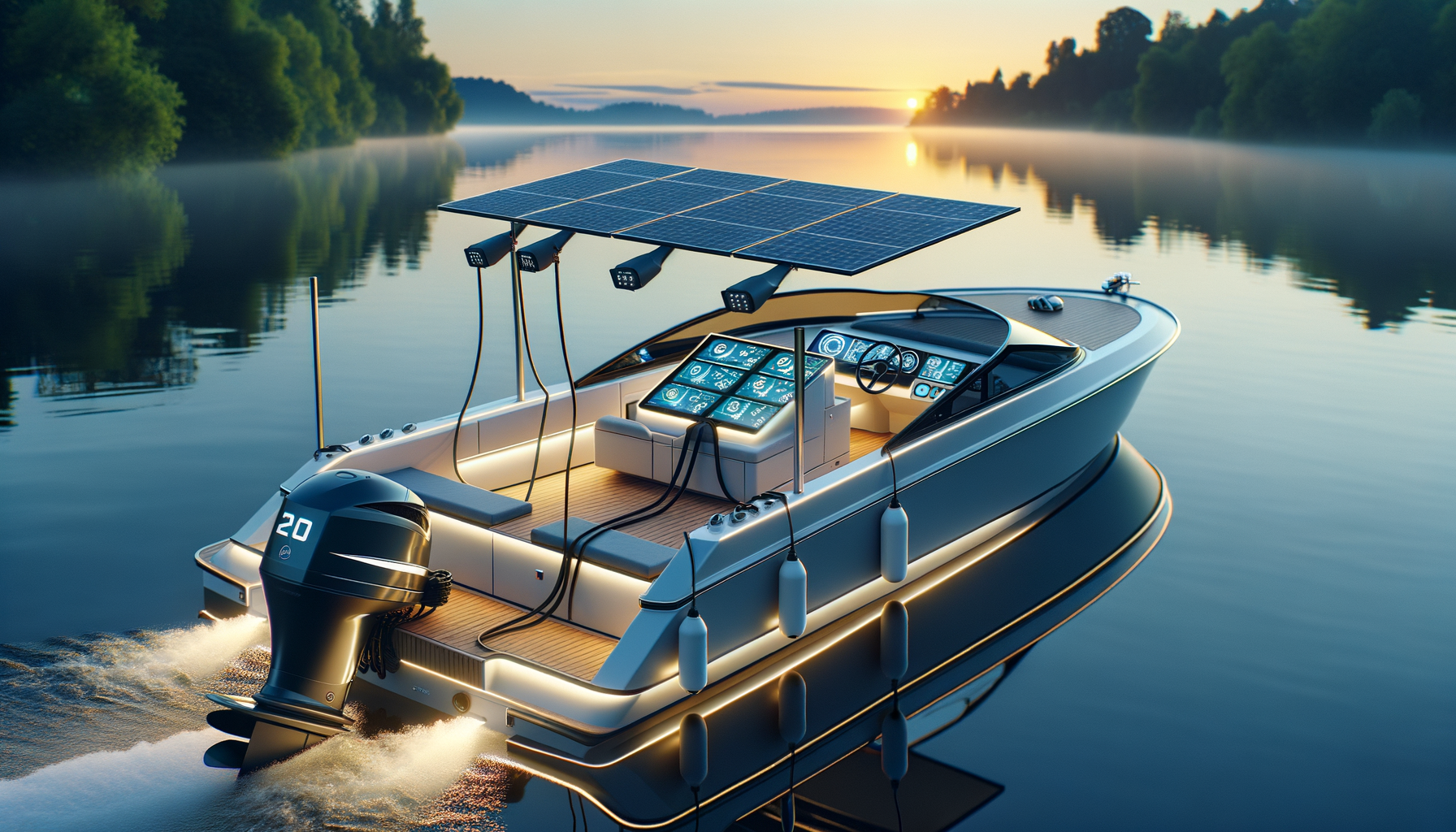The Rise of Small Electric Boats
Small electric boats have been steadily gaining popularity as more people seek sustainable and eco-friendly alternatives for water-based recreation. Unlike traditional boats that rely on gasoline or diesel engines, electric boats offer a quieter and more environmentally friendly option. This shift is part of a broader trend towards sustainable transportation, which includes electric cars and bicycles. The appeal of small electric boats lies not only in their reduced environmental impact but also in their low operational costs and ease of maintenance.
One of the key drivers behind the rise of electric boats is the growing awareness of environmental issues. As people become more conscious of their carbon footprint, the demand for cleaner alternatives increases. Electric boats produce zero emissions, making them an attractive choice for eco-conscious consumers. Additionally, they contribute to reducing noise pollution, which can be beneficial for both the environment and the boating experience.
Another factor contributing to the popularity of small electric boats is the advancement in battery technology. Modern batteries are more efficient and have a longer lifespan, allowing electric boats to travel longer distances on a single charge. This improvement in technology has made electric boats more practical and appealing to a wider audience.
Benefits of Choosing an Electric Boat
Electric boats offer a range of benefits that make them an appealing choice for many boaters. One of the most significant advantages is their low maintenance requirements. Unlike traditional boats with complex engines that require regular servicing, electric boats have fewer moving parts, resulting in less wear and tear. This simplicity translates to reduced maintenance costs and less time spent on upkeep.
Another benefit is the cost savings associated with operating an electric boat. Electricity is generally cheaper than gasoline or diesel, leading to lower fuel costs. Additionally, electric boats are often eligible for government incentives and tax breaks, further reducing the overall cost of ownership.
Electric boats also provide a quieter and more peaceful boating experience. The absence of a noisy engine allows boaters to enjoy the sounds of nature and engage in activities like fishing or birdwatching without disturbing the environment. This tranquility is a significant draw for many people who use boating as a way to relax and connect with nature.
Challenges and Considerations
While electric boats offer many benefits, there are also challenges and considerations to keep in mind. One of the primary challenges is the limited range compared to traditional boats. Although battery technology has improved, electric boats still have a shorter range, which may not be suitable for long-distance trips.
Charging infrastructure is another consideration. While electric vehicle charging stations are becoming more common, charging facilities for boats are still limited in many areas. Boaters need to plan their trips carefully and ensure they have access to charging points along their route.
Additionally, the initial cost of purchasing an electric boat can be higher than that of a traditional boat. However, the long-term savings on fuel and maintenance can offset this initial investment. Potential buyers should weigh these factors and consider their specific boating needs and habits before making a decision.
Types of Small Electric Boats
Small electric boats come in various types and designs, each suited for different purposes and environments. Some of the most common types include:
- Pontoon Boats: These are popular for leisurely cruises and social gatherings on the water. Electric pontoons offer a smooth and quiet ride, making them ideal for lakes and calm waters.
- Fishing Boats: Electric fishing boats are designed for anglers who want a quiet approach to their favorite fishing spots. The lack of engine noise helps avoid scaring away fish.
- Sailboats: Many small sailboats are now equipped with electric auxiliary motors, providing an eco-friendly option for sailors who need assistance in docking or navigating calm waters.
- Dinghies and Tenders: These small boats are often used as support vessels for larger boats. Electric dinghies are convenient for short trips to shore and are easy to maneuver.
Each type of electric boat offers unique advantages, and choosing the right one depends on the intended use and personal preferences of the boater.
Future of Electric Boating
The future of electric boating looks promising, with continued advancements in technology and growing interest in sustainable transportation. Innovations in battery technology are expected to extend the range and efficiency of electric boats, making them even more competitive with traditional options.
Furthermore, as more marinas and docking facilities invest in charging infrastructure, the accessibility and convenience of electric boating will improve. This development will likely encourage more people to make the switch to electric boats, further driving demand and innovation in the industry.
The increasing popularity of electric boats also presents opportunities for new business models and services, such as electric boat rentals and shared ownership programs. These initiatives can make electric boating more accessible to a broader audience, promoting a more sustainable and eco-friendly boating culture.
Overall, the future of electric boating is bright, with the potential to transform the way people experience and enjoy the water. As technology continues to evolve, electric boats are poised to become a mainstream choice for recreational and commercial boating alike.

Leave a Reply